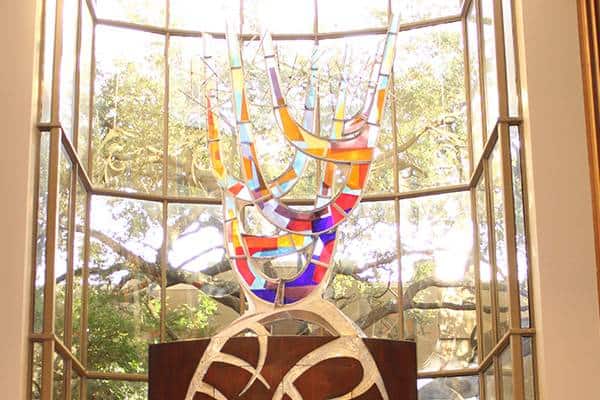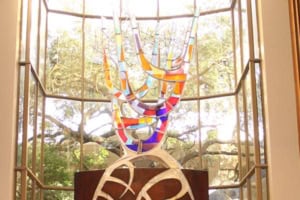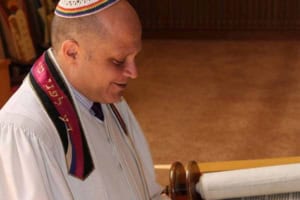Have you ever had one of those moments where something happens and you just… don’t know what to say? I’m not talking about something tragic or earth-shattering (yet). I mean the everyday, human, caught-off-guard kind of silence.
Like when someone tells you a story-really pouring their heart into it and the punchline falls completely flat. You smile… and nod… and say, “Wow. That’s something.” Because what else can you say?
Or when you show up to a dinner party, proud of your homemade dessert, and someone takes a bite, pauses, and says, “…Did you mean for it to taste like that?”
Speechless.
Or maybe it’s that universal experience of seeing a friend’s new baby for the first time—and the baby is… let’s just say… not in their cutest phase— and your brain scrambles to land on the most neutral sentence possible: “What a… strong neck!”
We’ve all been there. That moment when you open your mouth and realize your words have taken a brief vacation.
But of course, not all of those moments are awkward or funny.
Sometimes, something hits us so deeply-so suddenly-that it’s not that we don’t have something to say, it’s that words just aren’t enough. Or words are simply not there. We become literally speech-less. And that happens not just to people who don’t talk a lot, it happens to the speech-full people as well.
We recall the quintessential speechless moment in our Torah story, where we read in Parashat Shemini that the Mishkan—the sacred space in the wilderness—is finally complete. Aaron and his sons are being ordained. It’s supposed to be a day of celebration. A moment of holiness. A spiritual high point. But in a flash, joy turns to horror. Aaron’s sons, Nadav and Avihu, offer what the Torah calls an eish zarah—a strange fire—and they are struck down by God.
The very next line is one of the most haunting in the entire Torah: Vayidom Aharon. And Aaron was silent. No protest. No anger. No tears. Just… silence. Speech-less. Vayidom Aharon. And Aaron was silent.
It’s a strange word—vayidom. It doesn’t mean he was simply quiet. Not sheket. Not vayishtok—as in, he was forcibly silenced. But vayidom—from the root damam—the same root that gives us kol d’mamah dakah, the “still small voice” that Elijah hears on the mountain.
This wasn’t empty silence. It was a silence full of something—shock, grief, Divine presence, maybe even a whisper of understanding that Aaron couldn’t yet name. Because sometimes silence is the only thing that makes sense.
We’ve been there. When the phone rings in the middle of the night. When we get the diagnosis. When the news breaks and we know someone’s name before they say it. When the pain is too deep for words, and silence is all that remains.
But vayidom—holy silence—cannot be where the story ends. Because we do not live in silence. We live in the world. And the world needs our voices.
Just this past week, our country was shaken—again—by the sounds of gunfire. This time, on the campus of Florida State University. An individual opened fire and once again, a space of learning and growth was turned into a space of trauma and fear. And once again, we watched the all-too-familiar pattern: Shock. Thoughts and prayers. A press conference.
And then… silence. No change. No action. No moral outrage loud enough to shift the moment. Just the quiet hum of normalcy returning. But we know—this isn’t normal. And silence is not enough.
And it’s not just gun violence. Recently we all read in the news about the possibility of American citizens facing the real threat of deportation. Not to a country ruled by law, but to a place where human rights are a suggestion, and dissent is a crime. And there are real fears. Fears that our own government is complicit.
Fears that justice could be traded for convenience. Fears that the message being sent is: “If you speak out, we will silence you.” And fear that it could happen to anyone at any time. And again—silence. Not holy silence. Not vayidom. But fearful, avoidant, dangerous silence. Too many people are being told to stay quiet. Too many are afraid to speak. Too many are watching what they say, and wondering if their words will cost them everything.
And yet, even in the face of fear and fatigue, we are not without guidance. We know what we can do. We return, again and again, to the core of our tradition.
In the beginning, God speaks the world into being. The Torah doesn’t open with silence—it opens with vayomer Elohim. And God spoke. Over 2,000 times in the Torah we read: “Vayedaber Adonai el Moshe…” God spoke. Words matter. Voice matters.
Isaiah cries out, “Lift up your voice like a shofar!” The Psalmist teaches, “Let the words of my mouth and the meditations of my heart be acceptable before You, O God.”
We are not only permitted to speak. We are obligated to. To speak justice. To speak compassion. To speak truth to power. To speak hope into someone’s darkness. To speak life into someone’s despair. When we don’t—when we let that silence linger—it grows. It grows like a shadow. It grows like fear. It grows like a cancer. And soon we forget what it sounds like to cry out. We forget how to raise our voices. We forget how to disrupt the silence. But we must disturb the silence. Not always with shouting. But always with intention. Not always with speeches. But always with presence.
Because every one of us has a voice. That’s what Jewish singer-songwriter Elana Arian reminds us in her anthem of sacred resistance, “I have a voice. My voice is powerful. My voice can change the world.”
And it is not just a physical tool, it is a Divine gift.
When we use our voice to say: “I see you.” “I hear you.” “I love you.” “I’m with you.” “I won’t be silent while you suffer.” That… is holiness. When we raise our voices to say: “This isn’t right.” “This isn’t just.” “This cannot continue.” That is prophecy.
Aaron was silent. But we cannot be. This is not that moment. This is not a moment for vayidom. This is a moment for Isaiah’s cry. For Esther’s courage. For Miriam’s song. For your voice… and mine.
I know it can be scary, but let us not be afraid to disturb the silence. Let us use our voices to bring light, justice, and healing into the world. So write. March. Testify. Vote. Teach. Speak the truth at your table. Say the thing that needs to be said. Let us speak—while we still can. Amen.





